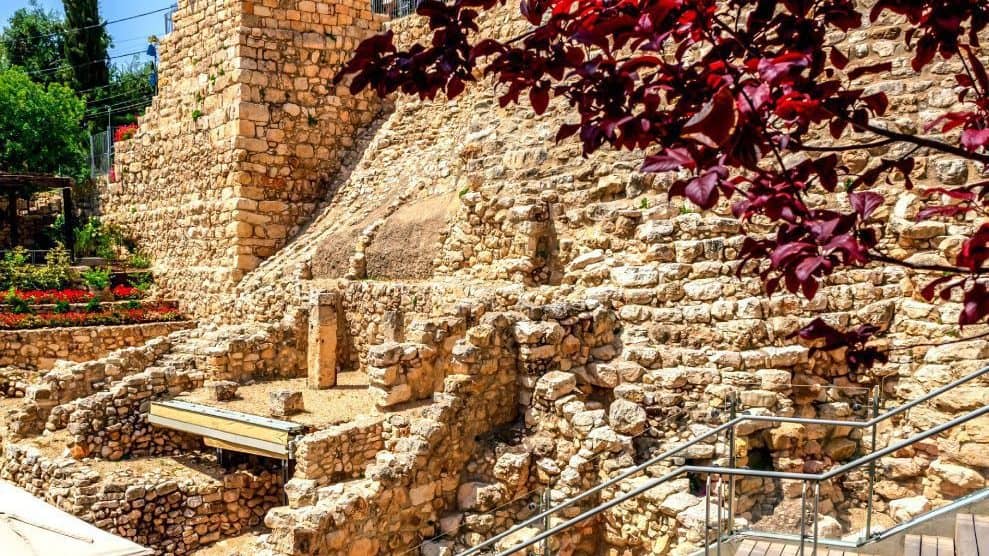Excavation directors Eli Shukron of the Israel Antiquities Authority and Professor Ronny Reich of the University of Haifa made two important discoveries during excavations of a drainage channel in the ancient City of David, including a Roman gladius from the time of the destruction of the Second Jewish Temple in 70 CE and an engraving of a Menorah on a piece of stone dating from 66 CE.
The City of David

What Made the Gladius Such an Efficient Sword?
The Israel Antiquities Authority announced the findings. They show that the drainage channel, which begins in the Siloam Pool and runs from the City of David to the archaeological garden, served as a hiding refuge for the residents of Jerusalem during the Roman siege of the Second Temple built by King Herod.
The gladius’ fine state of preservation is surprising; The preservation of the leather scabbard (a material that generally disintegrates quickly over time) and some of its decoration. The Roman Sword is the third Roman Sword found in Jerusalem.
Weapons of the Roman Army

The Roman Gladius is one of the most iconic weapons in history, renowned for its efficiency, versatility, and crucial role in the expansion of the Roman Empire. With its distinctive design, this short sword played a pivotal role in shaping the destiny of Rome.
Variations:
Over time, several variations of the Gladius emerged to suit different combat scenarios. Notable types include the Mainz Gladius, the Pompeii Gladius, and the Fulham Gladius, each with distinct blade shapes and lengths.
The Decline:
As the Roman Empire evolved, so did its military tactics and weaponry. The Gladius gradually gave way to longer swords and more advanced weapons. By the 3rd century CE, the Gladius had largely fallen out of use.
Legacy:
The Roman Gladius remains an enduring symbol of Roman martial prowess and engineering excellence. Its influence on sword design and its integral role in the rise of the Roman Empire continues to be subjects of fascination for historians, enthusiasts, and those captivated by the enduring legacy of ancient Rome.







